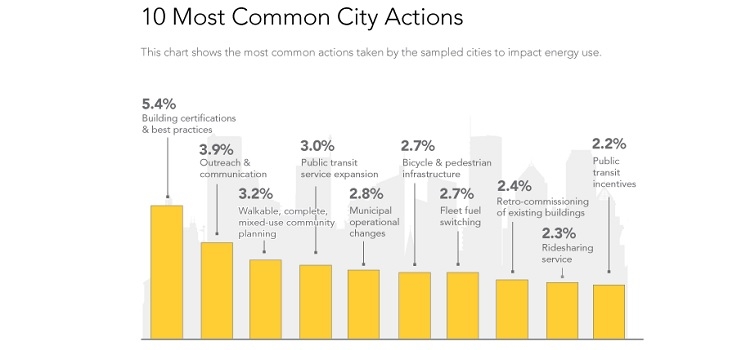by Brianna Crandall — August 5, 2016 — The U.S. Department of Energy (DOE) has just launched two new tools as part of its Cities Leading through Energy Analysis and Planning (Cities-LEAP) project. Created by DOE’s National Renewable Energy Laboratory (NREL), the energy profiles are designed to help cities nationwide make more strategic energy decisions based on actual and estimated data and analysis.
The City Energy Profile tool, which is available on the State and Local Energy Data Web site, uses innovative, robust data science methodologies to derive city-specific data for 23,400 cities across the United States.
In addition to providing cities with estimates of their electricity and natural gas use and costs by sector, the tool generates energy market profiles that provide data on the fuel types, including alternative fuels, and the fuel economy of vehicles registered in each city.
Megan Day, an NREL project leader of Policy and Technical Assistance, explained:
Cities are on the front lines of the clean energy transition. Electricity costs can be a large percentage of city and consumer costs, and cities are making decisions about how much clean energy they want as they negotiate with their power providers. By utilizing NREL’s experience, research, and analysis to synthesize information relevant to cities, we support them in achieving their energy and economic development goals.
The profiles also provide an estimate of vehicle fuel consumption, vehicle miles traveled, rooftop solar energy potential for small buildings, a building stock characterization, and a snapshot of the top energy-consuming industries in each city.
Communities are able to access a customizable list of actions to help make strategic energy decisions via the Local Energy Toolbox. The more than 500 searchable resources in the Toolbox are technology-neutral, actionable energy strategies based on the energy activities cities are currently pursuing, as detailed in the NREL report City-Level Energy Decision Making: Data Use in Energy Planning, Implementation, and Evaluation in U.S. Cities.
Collectively, Cities-LEAP tools and resources help cities identify and achieve energy priorities through localized data and sound analytical methodologies. These tools help city policymakers and staff members improve their communities through data-driven understanding of key factors that influence city energy decisions.






